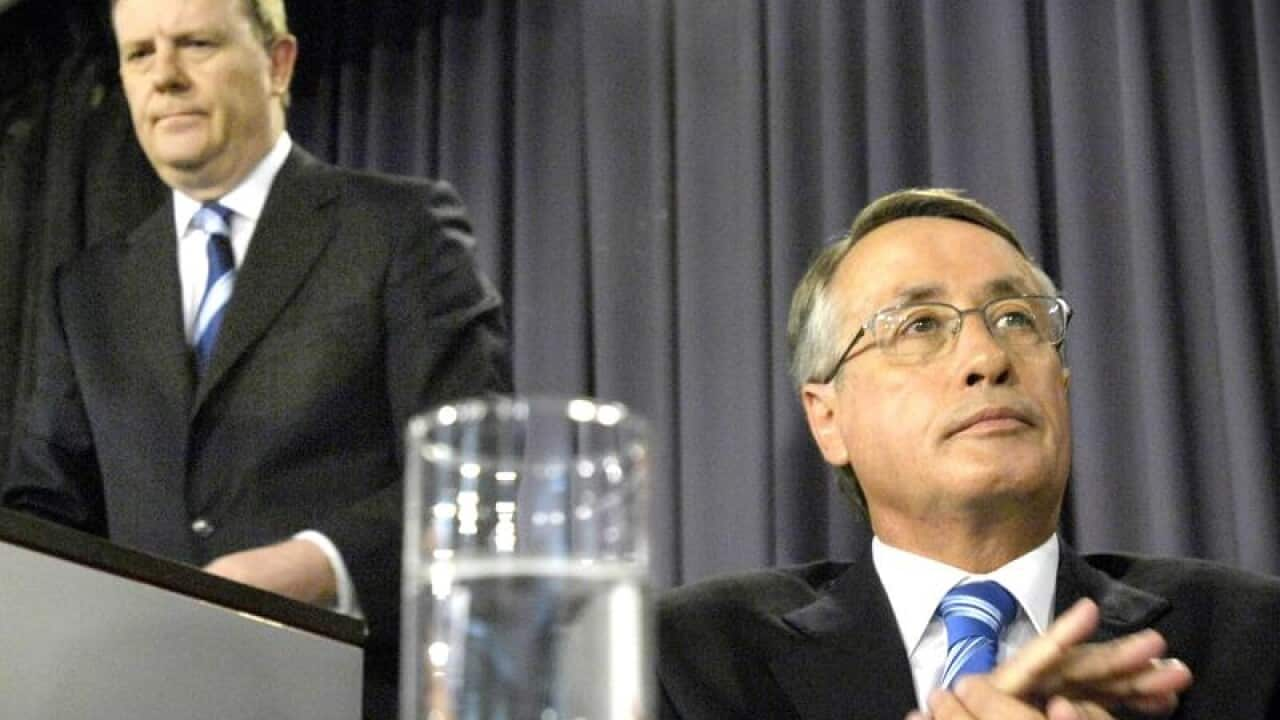Do tax cuts win elections? Not necessarily.
In what turned out to be former Liberal treasurer Peter Costello's last budget in 2007, he announced personal income tax cuts worth $31.5 billion (around $40 billion in today's money) over four years.
They included a number of changes to tax rate thresholds spread over the following two financial years.
However, under the prime ministership of John Howard, the coalition lost the federal election in November of that year.
It's probably an unfair comparison to the Turnbull government's tax cut effort that was passed by the federal parliament last week, given Howard and Costello had been in office for almost 12 years.
The coalition has been in power since September 2013 and Malcolm Turnbull has only been prime minister since September 2015, even if some people think it feels longer.
However, Australians aren't dancing in the street over Turnbull's seven-year personal income tax package being voted into legislation.
The weekly ANZ-Roy Morgan consumer confidence index - a pointer to future retail spending - actually fell for a second week in a row.
Likewise, polling ahead of the July 28 federal by-elections also suggest voters are hardly stampeding to the coalition following the tax cuts.
This tax plan is worth $13.4 billion over four years but explodes to $144 billion over the next decade
It kicks off on July 1 with a rise in the 32.5 per cent marginal tax rate threshold from $87,000 to $90,000.
From the same date, a new low and middle-income tax offset worth up to $530 begins but it won't be paid out until taxpayers do their tax returns at the end of the 2018/19 financial year.
So that $10 a week tax cut won't be in somebody's hand until after June 30, 2019.
Other tax reductions won't occur until 2022 and 2024.
Labor has vowed to overturn these latter tax cuts, arguing they are too far into the future to be confident they will be affordable.
Interestingly, Turnbull has said if the economy and the budget can afford it, some of those tax cuts may be brought forward.
Government figures this week showed that since the May budget, the deficit has unexpectedly shrunk by almost $6 billion for this financial year.
But what if Australia is hit by economic troubles in the next couple years - would the government rethink the reductions?
"If the economy were to soften in the years ahead the last thing you'd want to be doing is putting up tax," Turnbull says.
"You'd want to encourage, provide as much encouragement and incentive to people."
When Costello announced his final tax cuts, they came at a time of a rampant mining boom.
If anything, economists were concerned that putting more spending money in people's pockets would re-fuel inflation which had hit a rate of four per cent the previous year.
Incoming Labor treasurer Wayne Swan adopted most of the coalition's tax reductions and announced even further cuts out to 2010.
The inflation rate did indeed reach five per cent by September 2008 and even before all the tax cuts came into effect.
However, at roughly the same time the world's financial system erupted into the global financial crisis.
Those tax cuts eventually proved timely and provided an additional stimulus that helped the Australian economy avoid a recession that nearly every other nation in the world suffered.
Even so, Labor just scraped through as a minority government at the 2010 election.









